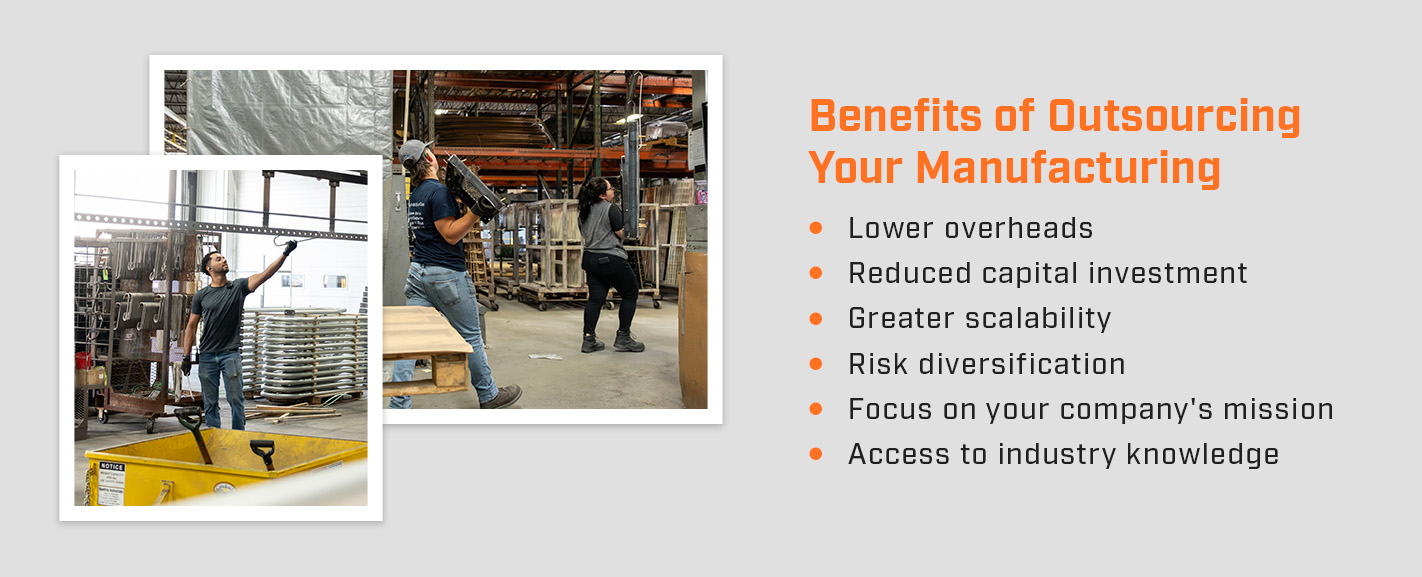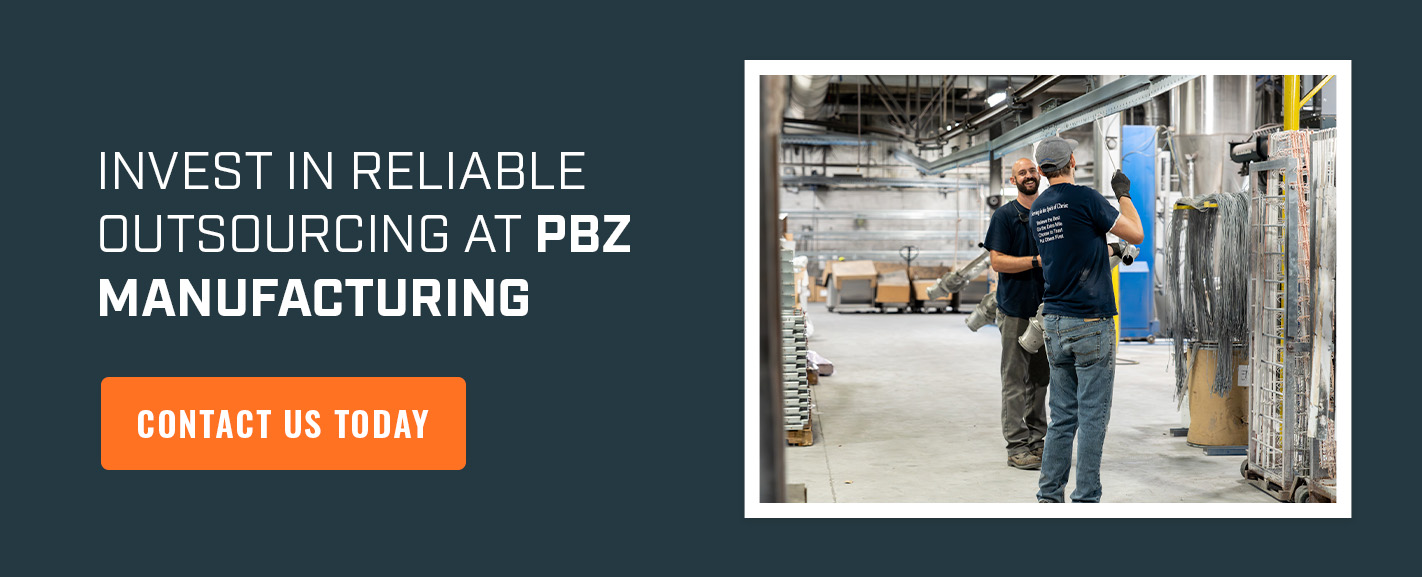
Also known as contract manufacturing, outsourced manufacturing is a business practice in which an organization contracts a third party to produce components, goods or products on their behalf. The hiring company leverages the contract manufacturer’s resources and expertise instead of establishing a new manufacturing operation. This concept is attractive for many companies, but is it viable for you?
Outsourced manufacturing can translate into various industries, including electronics, consumer goods, automotive and pharmaceuticals. The decision to outsource is strategic, and its success relies on open communication, collaboration and continuous evaluation. Here’s a guide to help determine your pros and cons of outsourcing manufacturing to see if it’s the best use of your time and money.
Table of Contents
Deciding whether to outsource your production depends on several variables related to your current operations. These include a cost analysis, your production requirements and how much seasonal demand impacts your current capabilities. Outsourcing may be valuable for your company if you answer “yes” to the following three questions.
As always, the most critical question in doing business relates to your bottom line. Will outsourcing provide you with better financial outcomes to offset its expenses?
In most cases, the outsourcing of manufacturing means reducing company labor costs. Outsourcing enables you to be efficient with your production labor. Outsourcing also cuts down on the many overhead costs of manufacturing operations, such as gas, utilities, water, electricity and maintenance.
Manufacturing equipment is a significant purchase for any company and may or may not offer a positive return on investment. Outsourcing manufacturing minimizes capital expenditures by eliminating the need to invest in large machinery for your facility. In turn, you can use the freed-up capital in other areas of your business.
Learn About Our Shipping and Logistics Capabilities →
Even if outsourcing is cheaper for your company, your manufacturing partner must meet or exceed your product quality and production expectations. If you are wondering how to outsource manufacturing, clearly define your production and quality standards, documenting specific requirements, lead times and quality benchmarks. It is also wise to vet the company’s compliance and certifications, like ISO 9001:2015 for quality management systems and other best practices. Additionally, determine how this company will protect your intellectual property, enabling you to continue delivering high-quality goods to your customers.
Before hiring a contract manufacturer, verify that the company maintains the following values.
It’s helpful to consider your product volume needs before outsourcing your manufacturing. If your company produces small volumes, you likely have the personnel and resources necessary to maintain production. As demand grows, you might require additional resources to keep up with higher order volumes.
If your current manufacturing strategy can’t handle larger volumes, you should consider outsourcing to supplement your resources and better meet rising demands.

When you outsource to a manufacturing partner, your company will experience all the following advantages.

Outsourcing offers various benefits, including cost savings, flexible production schedules and access to specialized expertise. To determine if this business model fits your organization, you should thoroughly evaluate the manufacturing partner’s capabilities, reputation and certifications. In doing so, you can align your business decisions with your long-term goals and ensure a successful partnership with a production facility.
If you’re looking to lower production costs and increase efficiency for your company, consider outsourcing with PBZ Manufacturing. Our team of certified welders has the knowledge and skills to take any manufacturing project from conception to completion. Our full-service metal manufacturing company has a wide range of capabilities, including engineering, finishing, assembling and shipping, making us your one-stop shop for outsourced manufacturing. Contact us today to learn more about our services!